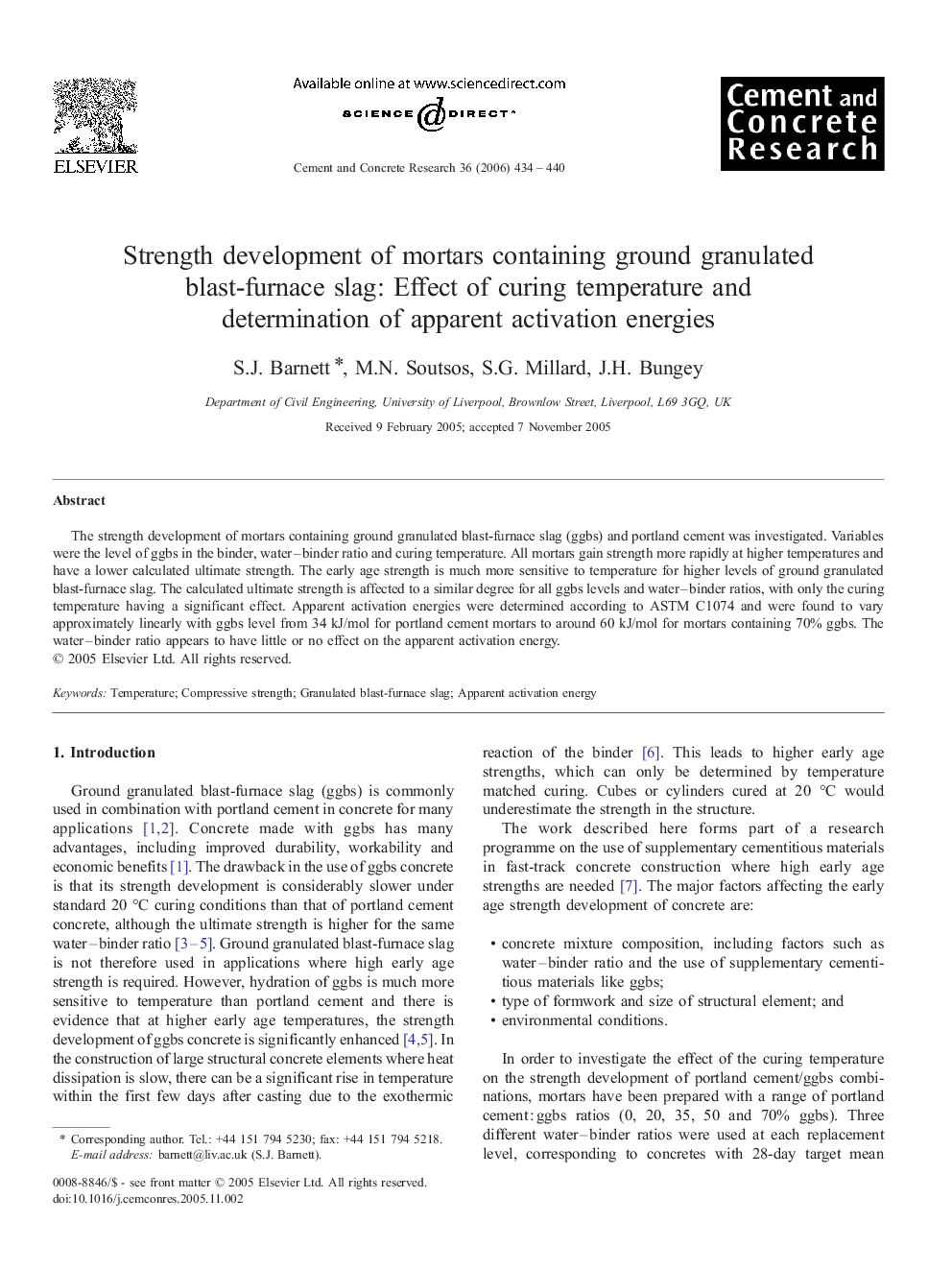| Article ID | Journal | Published Year | Pages | File Type |
|---|---|---|---|---|
| 1457915 | Cement and Concrete Research | 2006 | 7 Pages |
The strength development of mortars containing ground granulated blast-furnace slag (ggbs) and portland cement was investigated. Variables were the level of ggbs in the binder, water–binder ratio and curing temperature. All mortars gain strength more rapidly at higher temperatures and have a lower calculated ultimate strength. The early age strength is much more sensitive to temperature for higher levels of ground granulated blast-furnace slag. The calculated ultimate strength is affected to a similar degree for all ggbs levels and water–binder ratios, with only the curing temperature having a significant effect. Apparent activation energies were determined according to ASTM C1074 and were found to vary approximately linearly with ggbs level from 34 kJ/mol for portland cement mortars to around 60 kJ/mol for mortars containing 70% ggbs. The water–binder ratio appears to have little or no effect on the apparent activation energy.
